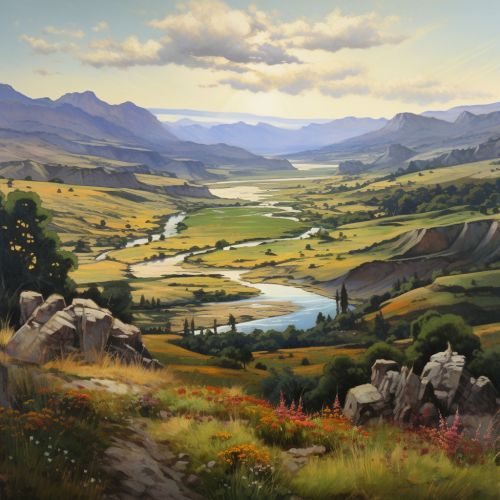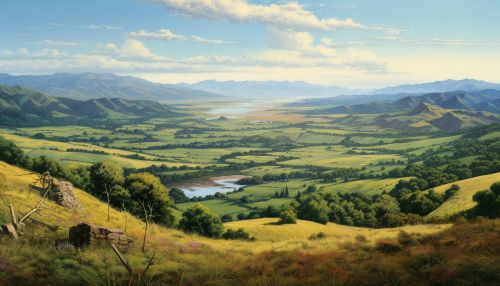Bulgaria
Geography
Bulgaria is located in Southeastern Europe, in the eastern part of the Balkan Peninsula. It is bordered by five countries: to the north by Romania, to the west by Serbia and North Macedonia, to the south by Greece, and to the southeast by Turkey. The eastern border of the country is formed by the Black Sea. The geographical location of Bulgaria is characterized by a great diversity of landforms: plains, hills, mountains, gorges, and deep river valleys.


History
The history of Bulgaria is marked by several significant periods. The prehistoric cultures in the area of present-day Bulgaria left behind numerous archaeological artifacts. The Thracians, an ancient Indo-European people, lived in the area before the Roman conquest in the 1st century AD. The First Bulgarian Empire was established in 681 AD, which quickly grew in power and size. The country's history continued with the Second Bulgarian Empire, the Ottoman rule, the Third Bulgarian State, and the contemporary period.
Culture
Bulgarian culture is rich and diverse, influenced by its history and geographical location. It encompasses literature, arts, music, dance, cuisine, and folklore. The traditional folk music and dances, such as the Horo, are particularly distinctive. Bulgarian literature has a rich history, with many notable authors such as Ivan Vazov and Elias Canetti. The country's visual arts tradition features a mix of influences, from Thracian and Byzantine art to modern and contemporary styles.
Economy
Bulgaria's economy is an industrialised, open free-market economy, with a large, moderately advanced private sector and a number of strategic state-owned enterprises. Major industries include electricity, gas, water; food, beverages, tobacco; machinery and equipment, automotive parts, IT components, software and hardware; pharmaceuticals. The country has a strong tradition in the production of textiles, clothing, and footwear, and in the development of software. Tourism also plays a significant role in the Bulgarian economy.
Government and Politics
Bulgaria is a parliamentary republic, with the government divided into legislative, executive, and judicial branches. The President is the head of state, while the Prime Minister is the head of government. The country is a member of several international organizations, including the European Union, NATO, and the United Nations.
Education and Science
Education in Bulgaria is overseen by the Ministry of Education and Science. The country has a well-developed system of primary, secondary, and higher education. Bulgaria has made significant contributions to a variety of scientific fields, with notable Bulgarian scientists in the fields of mathematics, physics, astronomy, and computer science.
Demographics
Bulgaria has a diverse population, with a mix of ethnic Bulgarians, Turks, Roma, and others. The official language is Bulgarian, and the predominant religion is Eastern Orthodox Christianity. The country's demographic profile has been shaped by several factors, including historical events, migration trends, and government policies.
